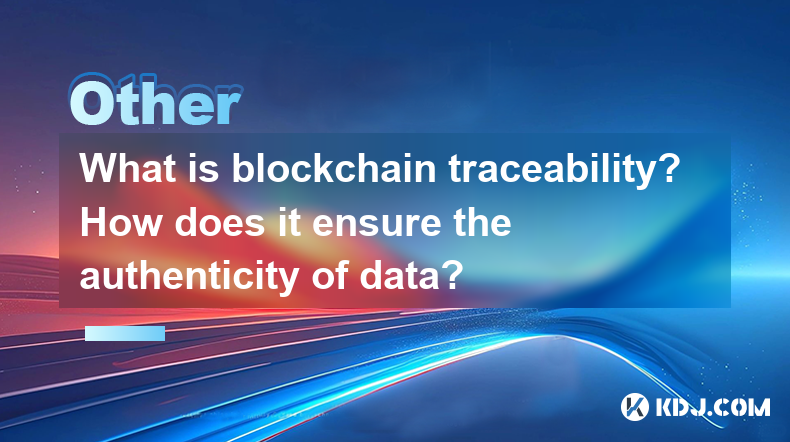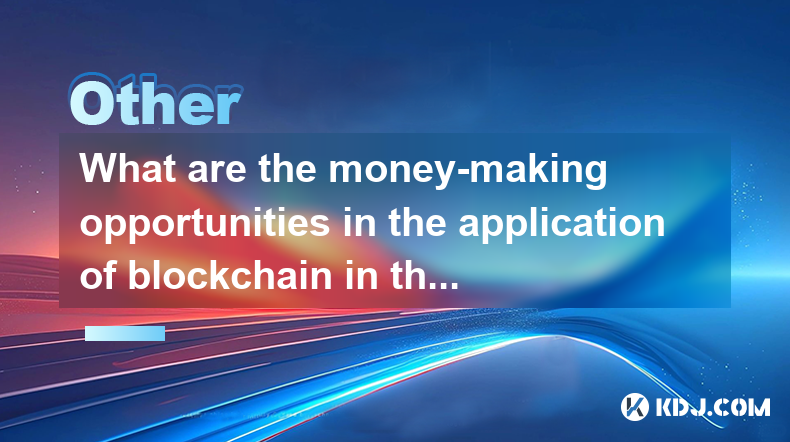-
 Bitcoin
Bitcoin $76,343.5966
-4.31% -
 Ethereum
Ethereum $1,454.0413
-8.00% -
 Tether USDt
Tether USDt $0.9991
-0.04% -
 XRP
XRP $1.7828
-7.91% -
 BNB
BNB $553.8873
-0.82% -
 USDC
USDC $1.0000
0.00% -
 Solana
Solana $104.8720
-3.94% -
 TRON
TRON $0.2302
0.67% -
 Dogecoin
Dogecoin $0.1416
-6.71% -
 Cardano
Cardano $0.5546
-6.43% -
 UNUS SED LEO
UNUS SED LEO $8.9909
1.00% -
 Toncoin
Toncoin $2.9762
-5.33% -
 Chainlink
Chainlink $10.8115
-7.01% -
 Stellar
Stellar $0.2204
-6.00% -
 Avalanche
Avalanche $15.9660
-5.37% -
 Sui
Sui $1.9482
-5.55% -
 Shiba Inu
Shiba Inu $0.0...01055
-8.53% -
 Hedera
Hedera $0.1471
-3.93% -
 MANTRA
MANTRA $6.1569
-2.04% -
 Dai
Dai $1.0001
0.01% -
 Bitcoin Cash
Bitcoin Cash $267.4871
-3.62% -
 Polkadot
Polkadot $3.3760
-7.32% -
 Litecoin
Litecoin $68.7761
-4.56% -
 Ethena USDe
Ethena USDe $0.9987
-0.01% -
 Bitget Token
Bitget Token $4.0123
-2.81% -
 Pi
Pi $0.5651
-5.06% -
 Hyperliquid
Hyperliquid $11.0565
-6.93% -
 Monero
Monero $196.2305
-3.25% -
 OKB
OKB $51.1707
-0.38% -
 Uniswap
Uniswap $4.7155
-9.14%
What is blockchain traceability? How does it ensure the authenticity of data?
Blockchain's immutability, cryptographic hashing, and consensus mechanisms ensure data authenticity and traceability, creating a tamper-proof record across diverse applications like supply chains and healthcare.
Mar 04, 2025 at 11:13 pm

Key Points:
- Blockchain's inherent immutability ensures data authenticity. Once recorded, data cannot be altered without detection.
- Traceability is achieved through a chronological, transparent record of transactions and data events.
- Cryptographic hashing links blocks, creating a chain of trust that verifies data integrity.
- Various consensus mechanisms ensure the accuracy and security of the blockchain.
- Blockchain traceability applications extend beyond cryptocurrencies to supply chains, healthcare, and more.
What is Blockchain Traceability?
Blockchain traceability leverages the distributed ledger technology (DLT) of blockchain to create a transparent and immutable record of a digital asset's journey. Unlike traditional databases, which can be easily altered, a blockchain's decentralized nature and cryptographic security make it extremely difficult to tamper with the recorded data. This creates a verifiable history of an asset, from its origin to its current state. This is achieved by recording each transaction or event on the blockchain, creating a chronological chain of custody.
How Does it Ensure the Authenticity of Data?
The authenticity of data on a blockchain is ensured through several key mechanisms. Firstly, every transaction or data entry is cryptographically hashed. This hash acts as a unique fingerprint for the data block. Secondly, each new block is linked to the previous block using its hash. This creates a chain of blocks, where tampering with one block would immediately invalidate the hashes of subsequent blocks. This makes alteration easily detectable.
The decentralized nature of the blockchain further enhances data authenticity. Multiple copies of the blockchain are distributed across a network of computers. Any attempt to alter data on one copy would be immediately detected and rejected by the network consensus mechanism. This consensus mechanism, which could be Proof-of-Work (PoW) or Proof-of-Stake (PoS), ensures that only valid transactions are added to the blockchain.
The Role of Cryptographic Hashing
Cryptographic hashing plays a crucial role in ensuring data authenticity within a blockchain. A hash function takes an input (data) and produces a fixed-size string of characters (the hash). Even a tiny change in the input data will result in a drastically different hash. This ensures that any alteration to the data is immediately apparent. The hash of each block is linked to the hash of the previous block, creating an unbroken chain.
This chain of hashes is what makes the blockchain tamper-proof. If someone tries to alter the data in a block, the hash of that block will change, breaking the chain and making the alteration instantly detectable. The integrity of the entire blockchain is therefore dependent on the integrity of its cryptographic hashes. This ensures the authenticity of every piece of data stored within.
Consensus Mechanisms and Their Importance
Different blockchains utilize various consensus mechanisms to validate and add new blocks to the chain. These mechanisms are critical in ensuring the accuracy and security of the blockchain, thus underpinning data authenticity.
- Proof-of-Work (PoW): This mechanism requires miners to solve complex computational problems to add a block to the chain. The computational effort makes it extremely difficult for malicious actors to control the network and alter the blockchain.
- Proof-of-Stake (PoS): This mechanism allows validators to add blocks to the chain based on the number of coins they stake. Validators with more staked coins have a higher chance of being selected to validate transactions, promoting network security and accuracy.
- Other Consensus Mechanisms: Other consensus mechanisms exist, such as Delegated Proof-of-Stake (DPoS) and Practical Byzantine Fault Tolerance (PBFT), each with its own strengths and weaknesses in securing the blockchain and maintaining data authenticity. The choice of consensus mechanism significantly influences the overall security and trustworthiness of the blockchain.
Applications Beyond Cryptocurrency
The benefits of blockchain traceability extend far beyond the cryptocurrency realm. Its applications are increasingly relevant across various industries:
- Supply Chain Management: Tracking goods from origin to consumer, ensuring authenticity and preventing counterfeiting.
- Healthcare: Securely storing and sharing patient medical records, improving data privacy and interoperability.
- Digital Identity: Creating secure and verifiable digital identities, reducing fraud and identity theft.
- Voting Systems: Enhancing the transparency and security of elections, preventing fraud and manipulation.
- Intellectual Property: Protecting intellectual property rights by creating an immutable record of ownership and creation.
Frequently Asked Questions:
Q: Is blockchain traceability foolproof?
A: While blockchain technology significantly enhances data security and traceability, it's not entirely foolproof. Vulnerabilities can exist in the implementation or smart contracts associated with the blockchain, potentially allowing for manipulation.
Q: How does blockchain traceability compare to traditional methods?
A: Traditional methods often rely on centralized databases, making them vulnerable to manipulation and data breaches. Blockchain offers enhanced security, transparency, and immutability, providing a higher level of trust and traceability.
Q: What are the limitations of blockchain traceability?
A: Scalability remains a challenge for some blockchains, limiting the volume of transactions they can process. The energy consumption of certain consensus mechanisms, like PoW, is also a significant concern. Furthermore, the complexity of blockchain technology can make implementation challenging for some industries.
Q: Can blockchain traceability be used to track individuals?
A: While blockchain can track transactions, the ability to directly link those transactions to specific individuals depends on the implementation. Privacy-enhancing technologies can be integrated to protect individual identities while maintaining the traceability of transactions or data.
Disclaimer:info@kdj.com
The information provided is not trading advice. kdj.com does not assume any responsibility for any investments made based on the information provided in this article. Cryptocurrencies are highly volatile and it is highly recommended that you invest with caution after thorough research!
If you believe that the content used on this website infringes your copyright, please contact us immediately (info@kdj.com) and we will delete it promptly.
- "Cardano (ADA) Price Could Dip Below $0.60, Following Previous Market Cycle"
- 2025-04-09 05:10:12
- BONK, the well-known meme coin, has risen over 35% in the last week, attracting meme coin investors in the market. So, what caused this rally?
- 2025-04-09 05:10:12
- Bitcoin (BTC) Investors May Not Exactly Feel It, but BTC Has Been a Relatively Good Bet
- 2025-04-09 05:05:12
- Donald's Bitcoin (DONBTC) Could Turn Early Investors into Multi-Millionaires, Like Shiba Inu (SHIB) and Dogecoin (DOGE) Did
- 2025-04-09 05:05:12
- 6 Upcoming Kraken Listings That Could Be the Next Big Thing in Crypto
- 2025-04-09 05:00:13
- COTI Unveils New Privacy-Focused Blockchain to Reshape Web3 Transactions
- 2025-04-09 05:00:13
Related knowledge

Is the ranking of Chinese blockchain apps real and reliable?
Apr 04,2025 at 09:01pm
The ranking of Chinese blockchain apps has become a topic of interest for many in the cryptocurrency community, as it provides insights into the popularity and adoption of blockchain technology within China. However, the reliability and authenticity of these rankings are often questioned. This article aims to delve into the factors that influence these ...

What are the future development trends of blockchain game development?
Apr 03,2025 at 05:00am
Blockchain technology has revolutionized various industries, and gaming is no exception. As we look to the future, several trends are set to shape the development of blockchain games. These trends not only promise to enhance the gaming experience but also to integrate blockchain technology more seamlessly into the gaming ecosystem. Let's explore these t...

What are the high-return opportunities for blockchain investments?
Apr 05,2025 at 02:35pm
Blockchain technology has revolutionized the financial world, offering numerous high-return investment opportunities. These opportunities span various sectors within the cryptocurrency ecosystem, including cryptocurrencies, decentralized finance (DeFi), non-fungible tokens (NFTs), and blockchain startups. Each of these areas presents unique risks and re...

What are the maintenance costs of blockchain system development?
Apr 03,2025 at 06:07pm
The maintenance costs of blockchain system development are multifaceted and depend on various factors. These costs can include technical maintenance, security updates, infrastructure expenses, and personnel costs. Understanding these elements is crucial for anyone planning to develop or maintain a blockchain system. Technical MaintenanceTechnical mainte...

What are the money-making models of blockchain games?
Apr 04,2025 at 02:00pm
Blockchain games have emerged as a revolutionary way for players to earn real money while enjoying their favorite pastime. These games leverage the power of blockchain technology to create unique money-making models that benefit both the players and the developers. In this article, we will explore the various money-making models of blockchain games and ...

What are the money-making opportunities in the application of blockchain in the field of Internet of Things?
Apr 05,2025 at 10:35pm
The integration of blockchain technology with the Internet of Things (IoT) presents numerous money-making opportunities. Blockchain, with its decentralized and secure nature, can revolutionize how IoT devices interact, manage data, and conduct transactions. This article will explore various avenues where entrepreneurs, developers, and investors can capi...

Is the ranking of Chinese blockchain apps real and reliable?
Apr 04,2025 at 09:01pm
The ranking of Chinese blockchain apps has become a topic of interest for many in the cryptocurrency community, as it provides insights into the popularity and adoption of blockchain technology within China. However, the reliability and authenticity of these rankings are often questioned. This article aims to delve into the factors that influence these ...

What are the future development trends of blockchain game development?
Apr 03,2025 at 05:00am
Blockchain technology has revolutionized various industries, and gaming is no exception. As we look to the future, several trends are set to shape the development of blockchain games. These trends not only promise to enhance the gaming experience but also to integrate blockchain technology more seamlessly into the gaming ecosystem. Let's explore these t...

What are the high-return opportunities for blockchain investments?
Apr 05,2025 at 02:35pm
Blockchain technology has revolutionized the financial world, offering numerous high-return investment opportunities. These opportunities span various sectors within the cryptocurrency ecosystem, including cryptocurrencies, decentralized finance (DeFi), non-fungible tokens (NFTs), and blockchain startups. Each of these areas presents unique risks and re...

What are the maintenance costs of blockchain system development?
Apr 03,2025 at 06:07pm
The maintenance costs of blockchain system development are multifaceted and depend on various factors. These costs can include technical maintenance, security updates, infrastructure expenses, and personnel costs. Understanding these elements is crucial for anyone planning to develop or maintain a blockchain system. Technical MaintenanceTechnical mainte...

What are the money-making models of blockchain games?
Apr 04,2025 at 02:00pm
Blockchain games have emerged as a revolutionary way for players to earn real money while enjoying their favorite pastime. These games leverage the power of blockchain technology to create unique money-making models that benefit both the players and the developers. In this article, we will explore the various money-making models of blockchain games and ...

What are the money-making opportunities in the application of blockchain in the field of Internet of Things?
Apr 05,2025 at 10:35pm
The integration of blockchain technology with the Internet of Things (IoT) presents numerous money-making opportunities. Blockchain, with its decentralized and secure nature, can revolutionize how IoT devices interact, manage data, and conduct transactions. This article will explore various avenues where entrepreneurs, developers, and investors can capi...
See all articles






















































































